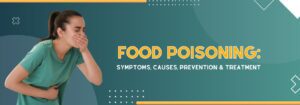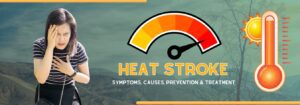Symptoms of Blocked Artery: Its Causes, Symptoms & Treatment
When it comes to cardiovascular health, understanding the symptoms of a blocked artery is crucial. A blocked artery, also known as atherosclerosis, occurs when fatty deposits called plaque build up inside the walls of arteries, restricting blood flow to vital organs and tissues. In this comprehensive guide, we delve into the causes, symptoms, treatment, and prevention strategies for blocked arteries to help you safeguard your heart health.
Causes of Blocked Arteries
High Cholesterol Levels
Excess cholesterol in the blood can accumulate in artery walls, leading to the formation of plaque. This plaque buildup narrows the arteries, impeding blood flow and increasing the risk of cardiovascular complications.
High Blood Pressure
Elevated blood pressure can damage artery walls, making them more susceptible to plaque accumulation. Over time, untreated hypertension can contribute to the development of blocked arteries and other cardiovascular issues.
Smoking
Tobacco smoke contains harmful chemicals that can damage the lining of arteries, promoting the formation of plaque. Smokers are at a significantly higher risk of developing blocked arteries compared to non-smokers.
Diabetes
Poorly managed diabetes can damage blood vessels throughout the body, including arteries. Individuals with diabetes are more prone to atherosclerosis, making them more susceptible to blocked arteries and related complications.
Obesity
Being overweight or obese increases the likelihood of developing blocked arteries. Excess body fat, especially around the abdomen, is associated with higher levels of cholesterol and inflammation, contributing to plaque buildup in the arteries.
Lack of Physical Activity
A sedentary lifestyle is a significant risk factor for blocked arteries. Regular exercise helps maintain healthy blood pressure, cholesterol levels, and weight, reducing the risk of atherosclerosis and cardiovascular disease.
Symptoms of Blocked Arteries
Chest Pain or Discomfort (Angina)
Angina is a common symptom of blocked arteries, characterized by chest pain or discomfort. This discomfort may feel like pressure, tightness, or squeezing in the chest and may radiate to the arms, shoulders, neck, jaw, or back.
Shortness of Breath
Blocked arteries can impair blood flow to the lungs, leading to shortness of breath, especially during physical exertion or stress. Persistent or worsening shortness of breath should prompt medical evaluation.
Fatigue
Reduced blood flow due to blocked arteries can cause fatigue and weakness, impacting daily activities and overall quality of life. Fatigue may worsen with physical exertion and improve with rest.
Nausea
In some cases, blocked arteries can cause nausea and even vomiting, particularly during episodes of angina or exertion. Persistent or severe nausea should be evaluated by a healthcare professional.
Irregular Heartbeat
Blocked arteries can disrupt the heart’s electrical signals, leading to an irregular heartbeat or palpitations. Arrhythmias may manifest as fluttering, pounding, or racing sensations in the chest.
Pain or Discomfort in Extremities
Peripheral artery disease (PAD), a condition associated with blocked arteries in the limbs, can cause pain, cramping, or numbness in the legs or arms, especially during physical activity.
Weakness or Numbness
Reduced blood flow to the extremities due to blocked arteries can result in weakness, numbness, or tingling sensations in the legs or arms. This symptom may worsen over time if left untreated.
Erectile Dysfunction (in Men)
Blocked arteries can impair blood flow to the genitals, leading to erectile dysfunction (ED) in men. ED may be an early indicator of underlying cardiovascular issues and should prompt medical evaluation.
Treatment of Blocked Arteries
Lifestyle Changes
Adopting a heart-healthy lifestyle is essential for managing blocked arteries. This includes eating a balanced diet low in saturated and trans fats, quitting smoking, maintaining a healthy weight, and engaging in regular physical activity.
Medications
Various medications may be prescribed to manage risk factors associated with blocked arteries, such as high cholesterol, high blood pressure, and diabetes. These may include statins, blood pressure-lowering drugs, antiplatelet agents, and medications to control blood sugar levels.
Angioplasty and Stenting
In cases of severe artery blockage, angioplasty and stenting may be recommended to restore blood flow. During this minimally invasive procedure, a catheter with a balloon at its tip is used to widen the blocked artery, and a stent may be placed to keep it open.
Coronary Artery Bypass Surgery
In advanced cases of blocked arteries, coronary artery bypass surgery may be necessary to reroute blood flow around the blockage using grafts from other blood vessels. This surgical procedure can improve blood flow to the heart and relieve symptoms of angina.
Prevention of Blocked Arteries
Maintain a Healthy Weight
Aim for a healthy weight through a balanced diet and regular exercise. Losing excess weight can reduce the risk of developing blocked arteries and other cardiovascular complications.
Eat a Heart-Healthy Diet
Consume a diet rich in fruits, vegetables, whole grains, lean proteins, and healthy fats. Limit intake of saturated and trans fats, cholesterol, sodium, and added sugars to promote heart health.
Exercise Regularly
Engage in moderate-intensity aerobic exercise for at least 150 minutes per week, along with muscle-strengthening activities on two or more days per week. Physical activity helps maintain healthy blood pressure, cholesterol levels, and weight.
Avoid Smoking and Limit Alcohol Consumption
Quit smoking if you smoke, and avoid exposure to secondhand smoke. Limit alcohol consumption to moderate levels, as excessive drinking can raise blood pressure and contribute to cardiovascular disease.
Manage Chronic Conditions
Manage chronic conditions such as diabetes, hypertension, and high cholesterol through regular medical check-ups, medication adherence, and lifestyle modifications. Keeping these conditions under control can reduce the risk of blocked arteries and related complications.
In conclusion, understanding the symptoms, treatment, and prevention of blocked arteries is essential for maintaining heart health and reducing the risk of cardiovascular disease. By adopting a heart-healthy lifestyle, managing risk factors, and seeking timely medical intervention, individuals can safeguard their cardiovascular health and enjoy a better quality of life.






